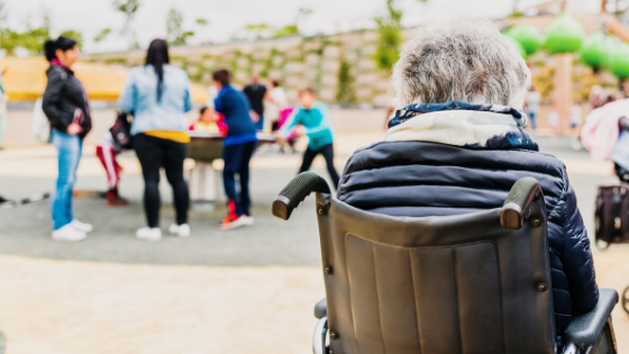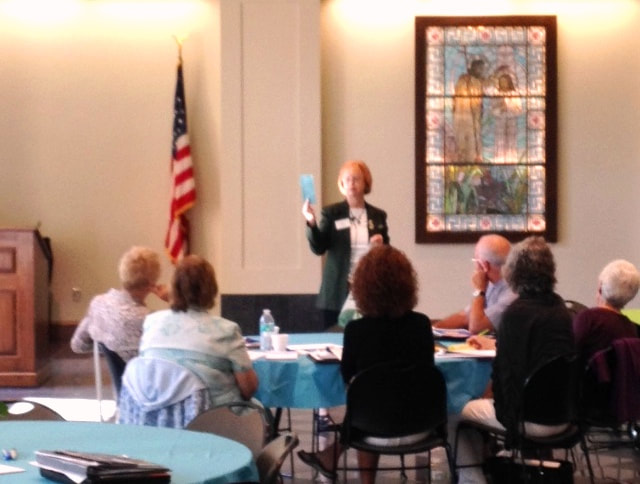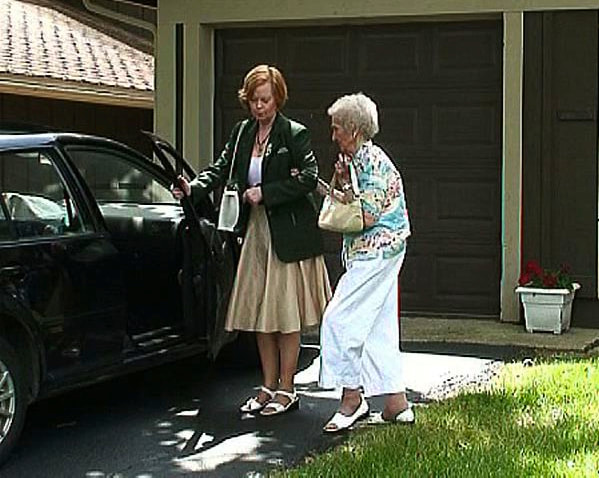|
Vindication: Memorial and Springfield Clinic have plans to reestablish Parking Valet Services. On September 18, 2023, I published Closing the Valet Parking Program at Memorial Hospital makes no sense and loses dollars. In that blog I referenced the first Illinois Times article: Tough choices at Memorial Health. The latest Illinois Times article, Memorial Health to bring back valet parking shows that when we speak, institutions do listen, eventually. While Senior Sidekicks was not the only voice protesting, our position against the idea was probably the most specific. Sadly, Memorial also made two other wrong-headed cuts; removing the chaplains and ethicists. My next blog will discuss the specific injuries the loss of those two divisions are inflicting on patients and the hospital itself. Stay tuned.
0 Comments
Senior health studies show that social isolation is as important health as flattening the Corona-19 virus infection curve in seniors.
OPINION: It’s Time to Flatten the Loneliness Curve for Older Americans, by Marc Freedman and John Gomperts, was published in Next Avenue, April 20, 2020. The article discusses the impact of social isolation on elder health. This factor was an issue before Covid-19. However, the quarantine has made their social isolation even worse. The article references other countries’ methods of recognizing and responding to social isolation and encouraging elder social engagement. It offers several possible methods to facilitate the development of programs in the USA as engines to promote a better quality of life for seniors and for society in general. Did you know that grants were made last year to develop a Social Isolation Task Force and create a public education program? These grants were offered to all the state agencies that operate under the mandate of The Older Americans Act. I was on one of those task forces in my state. The assumption was the public wasn’t aware of the magnitude of social isolation amongst elders. Another assumption was the public wasn’t aware of the effects of social isolation on senior health and cost of care. Covid-19 changed all that. We‘ve all had a crash course in the experience of social isolation: the Stay-at-Home orders. We’ve seen people reacting, sometimes threatening violence, in a push-back against such measures. Children have suffered socially, emotionally and in their education as a result of being isolated from friends and school. To combat Covid-19, social isolation was one of the few measures we could employ. While we intended to combat the virus with isolation, we didn’t intend to isolate elders before Covid-19. Our society’s systems just didn’t address elder social isolation. Our society did not face social isolation before because of three factors; our original population, our history, and our lack of a collective memory experience. Our population was largely imported, usually young adults and their children. Later, they might send for the elders in the old country, or not. A sea voyage could be quite stressful on an older person. Thus, young people settled here. Later, another generation of young people left for the next new frontier. Our history shows that elders were left behind; again, and again. As a result, our focus was a succession of new frontiers. The USA never developed a role or task for elders. Today, our old frontier is closed. It’s time to bring society into the new social frontier: one in which we recognize we are a multi-generational country. There are gifts from each generation. We need to develop a role, and a function that recognizes the value of elders: a living history, perspective and experience. We also lack a collective memory of the elder’s journey. We all remember things from our childhood; many of us may not “remember” things from our elder hood; unless we have made that journey ourselves. Society hadn’t experienced certain aspects of aging, like social isolation, until now. We should view stay-at-home orders as our chance to learn what life is like for seniors who are forced to stay-at-home. What puts elders in that position? Their health may not permit frequent trips outside the home. Other elders are trapped at home because they can no longer drive. Public transportation may be too infrequent, too strenuous, or non-existent. Some elders find that vision or hearing problems interfere with socializing. We have few forums in which all generations come together. Religious institutions fill some of that gap but they can’t cover all the bases. Our neighborhoods are often age-segregated. Schools group children into smaller age cohorts: this is not the era of the all-ages, one-room school house. We build age-segregated housing only for elders. How is anyone to learn about the elder journey if our opportunity for observation and interaction are taken away? Covid-19 has given us a gift in disguise; we all shared some of the elders’ social isolation predicament. We reacted vehemently to these restrictions on ourselves. Now we know what they feel. The recommendations made in this article should be implemented. Let’s learn from this. As the old song says; ”Someday, some d-a-a-y, we’ll be together. Yes we will, yes we will...” “‘This will be catastrophic’: Maine families face elder boom, worker shortage in preview of nation’s future,” from The Washington Post, could be a description of a dystopian movie: it’s not. This is the state of State of Maine, which is the harbinger of things to come for the rest of these 50 United States. We need to listen to this alarm.
We’re facing a demographic dilemma: not enough young people to fill all jobs, even those outside of elder care. We need them now! Where do we get them? We can’t hire them because they were never born! Thus, current workers remain on the job long after it’s safe or appropriate. Results include accumulated injuries to workers who keep doing injurious jobs. Even the field of healthcare can’t find enough workers or volunteers. The State of Maine has learned that there is no one available to fill home care jobs. There is no one to fill care facility jobs either. Professional fields have the same problem; many of the number of nurses and doctors are now older and there are not enough of them it is and there’s no one to replace them. Medicaid pays far less than other employers, drawing the few workers away from elder care. However, simply raising wages won’t help if there are not enough people to hire! Maine is already experiencing the results, some facilities closed altogether. Others closed admissions for months due to too few staff. No vacancies in care facilities means families must place their loved ones wherever they can. A loved one far away means a l-o-n-g commute to visit. Younger, disabled people also get caught in this care-crunch. If no one is available, some adult children try to fill the gap. Those care gaps further pressure the few remaining working adult children. Keep this number in mind: *By 2030, 1 in 5 Americans will be over 60. *The number of seniors will DOUBLE between 2015 and 2050. *The senior population over 85 will TRIPLE in that same period. **We will need 7.8 MILLION new people to fill these jobs. Since we didn’t give birth to them; where do we get them? This isn’t as riveting as a news story as a fire, or a shooting, that’s the problem. The numbers of affected families are there, but they aren’t collected (aggregated). This problem is spread everywhere. We’re in a presidential campaign yet no candidate is talking about this national problem. Why? This demographic dilemma is happening one family at a time: Your family is next. The Reuter's article, U.S wages lost to unpaid family care to hit $147 billion by 2050, describes lost wages and pressure on caregivers to switch to part time work or quit all together. These are definable numbers which the article describes well. One doesn’t hear enough about these issues and costs in the news media. I call upon anyone who knows a caregiver to insist on better public discussion on these caregiving issues/ costs/pressures.
I've always worried that caregivers also lost opportunity as well as wages. They are less likely to be offered new projects at work which can polish one's resume. They can’t take the lateral move which puts the employee in line to move up in a branch of the organization. A promotion comes with more demands on time and a different schedule. How can the working caregiver manage that? Promotions may mean a move out 0f town; how does a caregiver juggle that? So less chances to rise in a career. In addition, caregivers suffer hidden damages to their careers. Just taking repeated PTO (Paid Time Off) casts a shadow over one's career. Eventually, PTO runs out. When PTO runs out, the employee is left with FMLA (Family Medical Leave Act). That is usually unpaid. The employed caregiver must consider loss of income along with caregiving pressures. I'm also a member of Society for Human Resource Management (SHRM), and read their daily dispatches. It appears that employers are more comfortable allowing the employed caregiver a block of time, like a week or two, to handle a health crisis. Piecemeal time tracking is another matter. There are some tracking systems, however, these seem to be evolving methods. The employed caregiver may need to use her time in piecemeal form. Perhaps she takes her lunch time to supervise the elder taking medications. Her commuting time would be deducted from PTO or FMLA That's the typical shape of elder caregiving, a mosaic of times and tasks squeezed together throughout the day. So both the employed caregiver and her employer are both carrying this process. The caregiver is doing the tasks and the HR manager is handling the administration. This produces an implicit time cost to the employer. Why would the caregiver’s boss consider her for special projects, a move, or a promotion? These would demand more of her time and the employed caregiver doesn't appear to have any time. In order to develop one's career, one must appear to be ready and willing as well as able. No employer really knows whether any employee is truly available. However, a string of PTO/FMLA requests create an image of less availability. It’s a subtle form of job “loss” that doesn’t show on the paycheck. Only the US and England have a patchwork-to-none system for dealing with our aging population. Other European countries have created caregiving support systems. Why aren’t we looking at them? I’ve spent most of my career working with seniors and now I’m a senior. That position allows me to see certain situations with two viewpoints, professional and personal. A recent incident allowed me to glimpse a common situation families experience with seniors but from the internal viewpoint.
The typical scenario goes like this; family member does something they think would help the senior. They do it without discussing it with the senior; just present their contribution. The senior is far from appreciative. Instead, they are upset, angry, or dismissive. The family member reports that they feel wounded, or frustrated. Families say; “I was only trying to help!” Why didn’t the senior see the value? Ask yourself; “When I do things for my senior, am I doing it with them or to them?” I got to experience this myself. Recently, I visited my children in New York. We rented a B&B which turned out to be awful! After confronting the agent and securing a refund, we had a sad dinner. It was late at night and the children were on their phones looking for lodging. We trudged to the hotel; I checked in and went to bed. Unbeknown to me, the children believed the hotel was “dodgy”. They stayed up to late to book another hotel! Now, I was on the hook for a bill I knew nothing about! I woke up to a call from my daughter-in-law with this news. I had not yet showered, no breakfast, and now I’ve got to deal with this! I strenuously objected. Insight came to me in the shower (which was running very s-l-o-w-l-y). Three words stood at the center of this conflict: for, with, and to. My children thought they were doing something for me by booking another hotel. It didn’t feel like that to me. Is that what’s going on internally when the senior objects? Does for take away another piece of their autonomy? They didn’t do it with me. They kept silent instead of sharing their concerns about the hotel. They made financial assumptions instead of asking me questions. Their decision put me in a money bind. I felt as though things had been done to me. Is that what’s going on internally when seniors object? Are they really mad about the item or the way it came to them? Do families need to take time to walk the senior through the process (preferably after breakfast) or find some way to engage them? I believe that for is a good thing, in the combination of with, so it doesn’t feel like to. P.S. The next hotel had a better shower. When families gathered on Thanksgiving day, some realized that their senior was not the same as last year. Families often respond by doing internet research. The internet is a good first step. However, some sites make outlandish claims. I saw one that offered a treatment that “cured Alzheimer’s”. There is no cure and some of these sites can offer dangerous suggestions.
Here are a few reputable sites that offer reliable information: Alzheimer's Association. This site also has a page devoted to explaining the different types of dementia. It also lists other physical conditions or environmental conditions that can look like dementia. American Society on Aging. It can feel encyclopedic in size. The society has done decades of research and offers reliable information. It’s a good second step. AARP offers many programs and information for families as well as seniors. Each state has a chapter with offices in each area. Look up your state to find help in your area. And Senior Sidekicks offers a course; Preparing to Parent Your Parent, to prepare families for the practical issues they will face as they become caregivers. Contact us about teaching this course in your church or at your job. Call (217) 787-5866 or email us for more information. |
Author "A Senior Moment" is written by Ms. Sara Lieber, owner of Senior Sidekicks. Ms. Lieber has over 30 years of experience in senior care. Archives
March 2024
Categories
All
|







 RSS Feed
RSS Feed